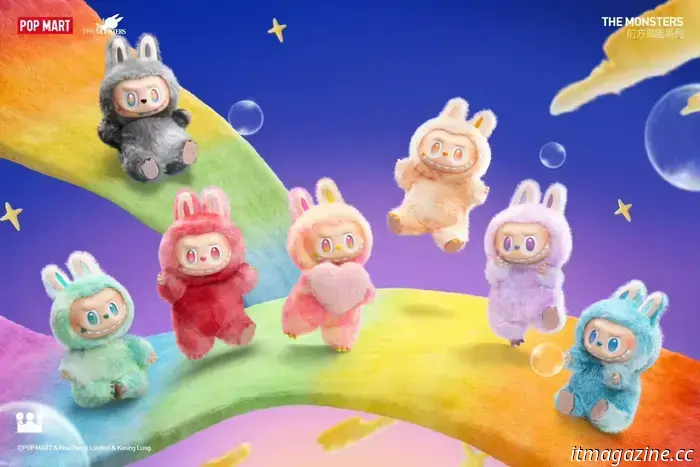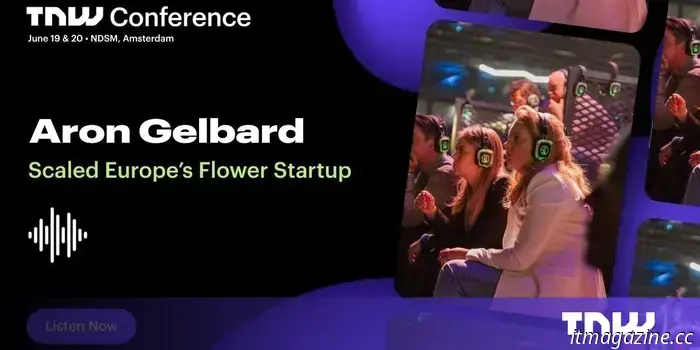
Behind the surge of blind boxes: the worldwide rise of Pop Mart’s Labubu
Labubu, a brand from the Chinese pop toy powerhouse Pop Mart, has recently gained rapid global recognition. Initially developed by Hong Kong artist Kasing Lung as part of a series inspired by Nordic folklore, Labubu has emerged as a celebrated figure in the designer toy realm, characterized by its distinctive pointy ears, nine jagged teeth, and playful grin. Its appeal stretches from China to Europe, the US, and Southeast Asia, reflecting the expanding global influence of Chinese pop culture. On Tuesday, Pop Mart's stock reached an all-time high, elevating its market capitalization to over HK$310 billion ($39.7 billion) after a rise of more than 160% this year. In the first quarter, the firm reported a revenue increase in China of 165-170% year-on-year, while international sales skyrocketed nearly 480%, although it did not specify exact revenue numbers. For context, its revenue for 2024 was RMB 13.04 billion ($1.83 billion), with RMB 7.97 billion ($1.12 billion) from China.
A combination of artistic vision and commercial tactics, Labubu was licensed to Pop Mart by Lung in 2019. Although it wasn't an instant hit, its combination of Nordic allure and urban street style started to resonate with younger consumers in China over time. Pop Mart's blind box sales strategy, which allows customers to purchase limited editions without knowing exactly what they are buying, enhanced its collectibility and viral status by appealing to the excitement of chance, often likened to low-stakes gambling.
Labubu first gained viral traction in 2024 when Thai pop star Lisa, a member of Blackpink, featured it on her social media, igniting a fan frenzy. That same year, Thai Princess Sirivannavari was seen wearing Labubu merchandise publicly. In Southeast Asia, Labubu has evolved into both a fashion statement and a cultural symbol of good luck, inspiring trends such as "praying to Labubu for luck."
In 2025, a variety of global celebrities further boosted Labubu's visibility. Pop icon Rihanna shared an image of her Labubu figure online, former footballer David Beckham showcased a Labubu his daughter gifted him, and Kylie Jenner’s daughter from the well-known Kardashian-Jenner family was spotted choosing figures at a Pop Mart store; British singer Dua Lipa has also voiced her admiration for the character.
Pop Mart's strategy in the US and Europe includes pop-up shops in Los Angeles and London, along with collaborations with local artists and retailers. Notable initiatives feature a “Street Elf” line with a New York graffiti artist and an exclusive range at Hamleys.
However, the intense demand has attracted scalpers and counterfeiters, especially in Southeast Asia. Scalpers have hoarded Labubu stock and raised prices, making it difficult for regular consumers to purchase at retail cost. Counterfeit products have also inundated online resell platforms. In response, Pop Mart has implemented real-name purchase systems, imposed purchase limits, partnered with customs to combat smuggling, and utilized blockchain technology to verify limited editions.
A significant concern remains the brand's longevity. While Labubu has diversified into plush toys, apparel, and home decor, an over-dependence on scarcity marketing could lead to consumer fatigue.
Labubu’s ascent signifies a pivotal moment for Chinese intellectual properties. It breaks the long-held supremacy of Japanese, Korean, and Western intellectual properties, demonstrating that original Chinese designs can resonate globally. With ongoing expansion into international markets and collaborations with global titans like Disney and Universal Studios, Labubu is positioned to unite Eastern and Western trends. Pop Mart founder Wang Ning remarked, “Labubu’s pointy ears transcend language, but its essence is rooted in China’s understanding of global youth culture.” The sustainability of Labubu as a global icon will depend on Pop Mart’s capacity to balance creativity with commercial success, but its journey has already created history in China's designer toy sector.
In a recent online interview conducted by TechNode, a Pop Mart collector known as Zi Yao shared insights about their passion for Labubu.
Q: When did you begin collecting Labubu, and what attracted you?
Zi: I started collecting Labubu blind boxes around 2020 when it was gaining popularity in Pop Mart’s lineup. I was drawn to its “ugly-cute” aesthetic. Unlike most blind box IPs that aim for cuteness or beauty, Labubu’s quirky and slightly unusual look really stood out to me.
Q: What are your thoughts on the randomness of blind box draws, and how does this influence your buying choices?
Zi: For me, blind box draws feel like a gamble, but they are more acceptable since you do get something for your money. The list of possible figures is clear from the start, and each series has a set number of boxes, so it doesn’t feel like true gambling where you could lose everything. However, the notion of a “



Other articles
 The EU has approved the first mixed reality flight simulator designed for pilot training.
For the first time, the European Union Aviation Safety Agency (EASA) has approved a mixed reality headset for training in civil aviation.
The EU has approved the first mixed reality flight simulator designed for pilot training.
For the first time, the European Union Aviation Safety Agency (EASA) has approved a mixed reality headset for training in civil aviation.
 TNW Backstage interviews the founder who transformed flower delivery.
This week on TNW Backstage, the guest is Aron Gelbard, co-founder and CEO of Bloom & Wild, which is the highest-rated online flower delivery service in the UK.
TNW Backstage interviews the founder who transformed flower delivery.
This week on TNW Backstage, the guest is Aron Gelbard, co-founder and CEO of Bloom & Wild, which is the highest-rated online flower delivery service in the UK.
 Klarna's CEO: Engineers may fall behind business professionals with coding skills.
Sebastian Siemiatkowski states that the quickest achievers at Klarna are not conventional engineers, but rather business individuals who have acquired coding skills.
Klarna's CEO: Engineers may fall behind business professionals with coding skills.
Sebastian Siemiatkowski states that the quickest achievers at Klarna are not conventional engineers, but rather business individuals who have acquired coding skills.
 How to build your own little YouTube
Why depend on giants like YouTube if you can do everything yourself? PeerTube is like a homemade YouTube, only without Google servers, algorithms, and billion—dollar budgets. I installed it on the server, uploaded the video, and voila — you are the owner of your video hosting.
How to build your own little YouTube
Why depend on giants like YouTube if you can do everything yourself? PeerTube is like a homemade YouTube, only without Google servers, algorithms, and billion—dollar budgets. I installed it on the server, uploaded the video, and voila — you are the owner of your video hosting.
 Tech executives criticize "incredibly toxic" demands for seven-day work weeks.
Venture capitalists encouraging startup founders to put in seven days of work each week are encountering criticism from European tech leaders, who label the notion as "toxic" and "childish."
Tech executives criticize "incredibly toxic" demands for seven-day work weeks.
Venture capitalists encouraging startup founders to put in seven days of work each week are encountering criticism from European tech leaders, who label the notion as "toxic" and "childish."
Behind the surge of blind boxes: the worldwide rise of Pop Mart’s Labubu
On Tuesday, Pop Mart's shares reached an all-time high, elevating its market capitalization to over HK$310 billion ($39.7 billion) following an increase of more than 160% this year.
